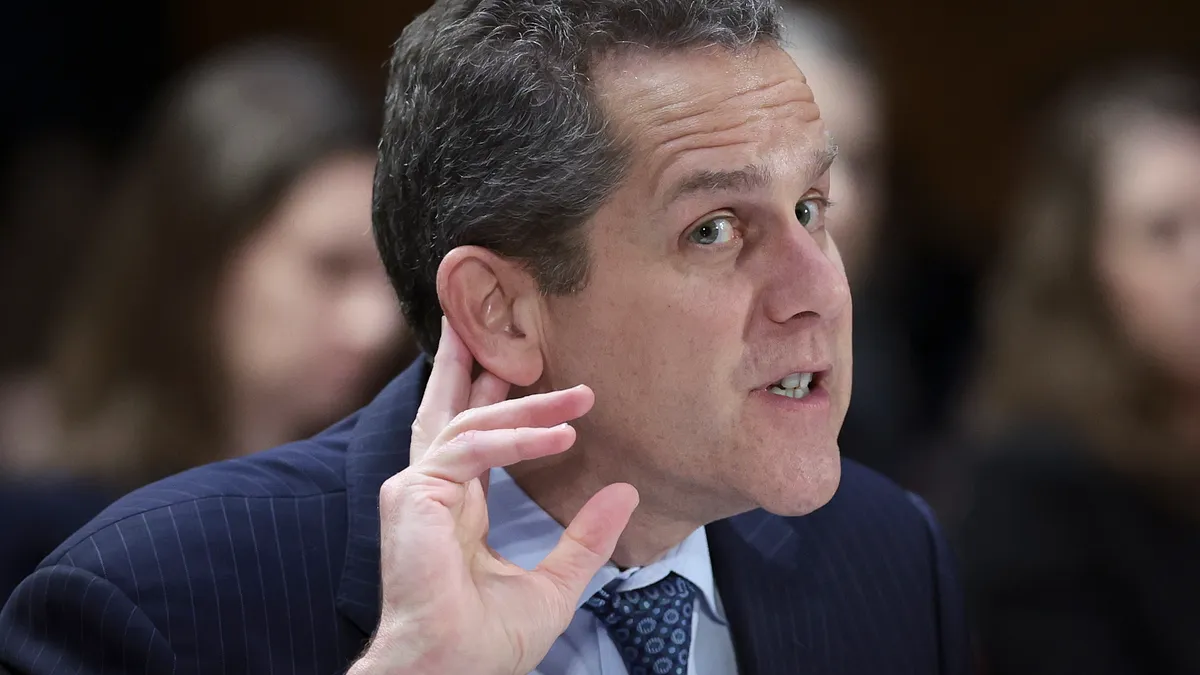The Federal Reserve may hire behavioral scientists and experiment with reverse stress testing as part of a focused effort to tweak its bank supervision process throughout the rest of this year, Michael Barr, the central bank’s vice chair for supervision, said at an event Tuesday held by the New York Fed.
“We are going to conduct a project that looks systemwide at areas where we can enhance our supervisory culture, behavior, practices and tools, and also where we need to change regulation over the next six months,” Barr said, according to Bloomberg.
Adding behavioral scientists would give the Fed “a more multidisciplinary lens,” Barr said, and perhaps a counterbalance to teams populated by the likes of economists and lawyers.
Reverse stress tests, meanwhile, could serve as a more pointed tool to measure a bank’s resilience than the typical process of combining several hypothetical factors and applying them broadly across dozens of banks, Barr said.
"Instead of thinking of a stressful scenario and then seeing how it would play through on, say, the balance sheet of a firm, you look at a bank and you say, well, what would it take to break this institution?” Barr said, according to Reuters. “What are the different ways this institution could die, or a piece of it, a significant piece of it?”
Barr said he also wants to push Fed supervisors to more rapidly identify and address regulatory concerns during non-crisis periods.
"We're great in a crisis, but on supervisory issues, as an institution, we move more slowly,” he said, according to American Banker. "We tend to have a culture that really makes it difficult for the institution to act quickly with supervision. We try to build consensus. We want to make sure that our evidentiary reference is strong. We're an institution that focuses on process, but we're not an institution that moves quickly on supervisions.”
New York Fed President John Williams, who spoke alongside Barr at the event Tuesday, said examining bank culture needs to be less about correcting or avoiding bad behavior.
"It's actually about conceptualizing and supporting and fostering good behavior to help the organization be successful on a sustained basis,” he said, according to American Banker.
Additionally, Fed supervisors need to place more focus on the cultural example a bank sets from the top down.
“We tend not to talk about boards of directors as much as we should,” Williams said.
Barr is eyeing three reference points in the effort to sharpen Fed supervision this year: the central bank’s April report on the failure of Silicon Valley Bank, a 2009 New York Fed report on the future of supervision and a "blue sky visioning process" on alternative approaches to bank supervision, he said, according to American Banker.
"There's a ton that we could learn from other jurisdictions," Barr said, noting regulatory work in the U.K., Australia and the Netherlands.












